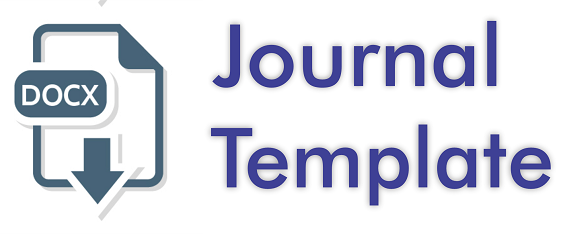Peran Kalangan Milenial Terhadap Pengembangan Ekonomi Syariah Di Kabupaten Mandailing Natal
DOI:
https://doi.org/10.59107/ri.v2i1.30Keywords:
Millennials, Islamic Economics, Millennials RolesAbstract
Millennials are people who are very attached to technology and the internet. Millennials prefer everything that is instant and efficient. The role of millennials in the sharia economy in Indonesia is to develop technology that can facilitate the Indonesian people in carrying out economic activities that are more efficient and not wasting time, millennials can disseminate sharia economic products through social media in Indonesia or abroad. This article aims to determine the role of millennials in the Islamic economy in Indonesia. The instrument in this study is an inductive thinking model and interviews with research informants. Based on interviews conducted by researchers, they found that millennials have had a positive impact on the Islamic economy in Indonesia, namely: 1) introducing Islamic economics to society, 2) developing Islamic economic products, 3) adding new innovations to the Islamic economy through existing technology.
Downloads
References
Agustiari, A., & Fauzi, M. (2021). Pendistribusian Zakat Bentuk Pinjaman Dalam Mengatasi Pedagang Usaha Mikro Dari Pinjaman Ribawi Di BAZNAS Kabupaten Kerinci. Jurnal Iqtisaduna, 7(2), 163–176. https://doi.org/10.24252/IQTISADUNA.V7I2.25402
Antonio, Muhammad Syafi’i, (2001), Bank Syariah Dari Teori Ke Praktik, Jakarta: Gema Insani.
Atmajaya Ratu Surya, Misbakhul Munir Mubarok. (2022). Digitalisasi Ekonomi Syariah Di Kalangan Kaum Milenial Untuk Pengembangan Ekonomi Syariah. Jurnal Inovasi Penelitian, 2(12).
Bogdan, R., & Biklen, S.K. (2007). Qualitative Research for Education and Introduction to Theory and Methods. Boston, Allyn and Bacon
Cintyawaty, A., Ditama, R. A., & Fauzi, M. (2022). Persepsi Dan Preferensi Masyarakat Pesantren Terhadap Bank Syari’ah (Studi Kasus Masyarakat Pesantren Sumatera Barat). Qawwam: The Leader's Writing, 3(1), 21-36. https://doi.org/10.32939/qawwam.v3i1.154
Fauzi, M., & Fauzan, M. (2022). Pengaruh Store Atmosphere Terhadap Minat Beli Konsumen Pada Depati Vii Kopi Kota Sungai Penuh (Kerinci). EL MUDHORIB: Jurnal Kajian Ekonomi dan Perbankan Syariah, 3(2), 99-114. http://e-journal.iainfmpapua.ac.id/index.php/elmudhorib/article/view/443
Fauzi, M., Arzam, A., Novia, A., & Hulwati, H. (2022). KESEJAHTERAAN EKONOMI ISLAM: Bukti Dari Masyarakat Penerima Manfaat Badan Usaha Milik Desa (BUMDes) Karya Dermawan Dusun Dalam. An-Nisbah: Jurnal Ekonomi Syariah, 9(02), 375–409. https://doi.org/10.21274/an.v9i2.5930
Fauzi, M., Kusnadi, K., Musdizal, M., & Rafzan, R. (2022). Mata Uang Digital (Cryptocurrency): Apakah Statusnya Memenuhi Kriteria Harta (Maal) dan Mata Uang Dalam Islam?. Jurnal Hukum Ekonomi Syariah: AICONOMIA, 1(2), 72-87. https://doi.org/10.32939/acm.v1i2.2420
Fauzi, M., Asa’ari, A., Arzam, A., Mursal, M., Zufriani, Z., Novia, A., & Syarif, D. (2021). Welfare Beneficiary Community BUMDes Karya Dermawan Dusun Dalam Village. International Journal of Social Science and Business, 5(3), 319–325. https://doi.org/10.23887/IJSSB.V5I3.38621
Fauzi, M., Novia, A., Rahmat, P., Bustami, A. W., & Ditama, R. A. (2021). Islamic E-Service Quality (IESQ): Sebuah Model Konseptual. Maqdis: Jurnal Kajian Ekonomi Islam, 6(1), 59-76. http://dx.doi.org/10.15548/maqdis.v6i1.508
Hutagalung, M. A., Fitri, R., & Ritonga, S. R. (2019). Generasi Muslim Milenial dan Wirausaha. Seminar Nasional Hasil Pengabdian Kepada Masyarakat 2019 (pp. 300-304). Pontianak: STMIK Pontianak.
Ipandang, Andi Askar. (2020). Konsep Riba Dalam Fiqih dan Al-Qur’an: Studi Komparasi, Jurnal Penelitian Hukum dan Pendidikan, 19(2).
Iswanto, A. (2018). Membaca Kecenderungan Pemikiran Islam Generasi Milenial Indonesia. Jurnal Multikultural & Multireligius, 17(1), 177-184.
Nurul Ihsan, dkk, (April 2022), Analisis Minat Masyarakat Terhadap Perbankan Syariah di Wilayah Kecamatan Panceng Kabupaten Gresik, Baabu Al-Ilmi Ekonomi Dan Perbankan Syariah, 7(1).
Sugiyono. (2015). Metode Penelitian Kuantitatif, Kualitatif Dan R &. D. Bandung, Penerbit Alfabeta.
Yusuf, A. Muri. (2014). Metode Penelitian: Kuantitatif, Kualitatif, Dan Penelitian Gabungan. Jakarta, Kencana.
Downloads
Published
Issue
Section
License
Copyright (c) 2023 RISALAH IQTISADIYAH: Journal of Sharia Economics

This work is licensed under a Creative Commons Attribution 4.0 International License.
License
The non-commercial use of the article will be governed by the Creative Commons Attribution license as currently displayed on http://creativecommons.org/licenses/by/4.0/. This licence allows the user to distribute, remix, tweak, and build upon the licensed work, including for commercial purposes, as long as the original author is credited.
Author’s Warranties
The author warrants that the article is original, written by stated author/s, has not been published before, contains no unlawful statements, does not infringe the rights of others, is subject to copyright that is vested exclusively in the author and free of any third party rights, and that any necessary written permissions to quote from other sources have been obtained by the author/s.
User Rights
Under the Creative Commons Attribution license, the author(s) and users are free to share (copy, distribute and transmit the contribution).
Rights of Authors
Authors retain the following rights:
- copyright, and other proprietary rights relating to the article, such as patent rights,
- the right to use the substance of the article in future own works, including lectures and books,
- the right to reproduce the article for own purposes, provided the copies are not offered for sale,
- the right to self-archive the article.
Co-Authorship
If the article was prepared jointly with other authors, the signatory of this form warrants that he/she has been authorized by all co-authors to sign this agreement on their behalf, and agrees to inform his/her co-authors of the terms of this agreement.
Termination
This agreement can be terminated by the author or RISALAH IQTISADIYAH: JOURNAL OF SHARIA ECONOMICS upon two months’ notice where the other party has materially breached this agreement and failed to remedy such breach within a month of being given the terminating party’s notice requesting such breach to be remedied. No breach or violation of this agreement will cause this agreement or any license granted in it to terminate automatically or affect the definition of RISALAH IQTISADIYAH: JOURNAL OF SHARIA ECONOMICS.
Royalties
This agreement entitles the author to no royalties or other fees. To such extent as legally permissible, the author waives his or her right to collect royalties relative to the article in respect of any use of the article by RISALAH IQTISADIYAH: JOURNAL OF SHARIA ECONOMICS or its sublicensee.
Miscellaneous
RISALAH IQTISADIYAH: JOURNAL OF SHARIA ECONOMICS will publish the article (or have it published) in the Journal, if the article’s editorial process is successfully completed and RISALAH IQTISADIYAH: JOURNAL OF SHARIA ECONOMICS or its sublicensee has become obligated to have the article published. RISALAH IQTISADIYAH: JOURNAL OF SHARIA ECONOMICS may conform the article to a style of punctuation, spelling, capitalization and usage that it deems appropriate. The author acknowledges that the article may be published so that it will be publicly accessible and such access will be free of charge for the readers. RISALAH IQTISADIYAH: JOURNAL OF SHARIA ECONOMICS will be allowed to sublicense the rights that are licensed to it under this agreement.



.png)
.png)






